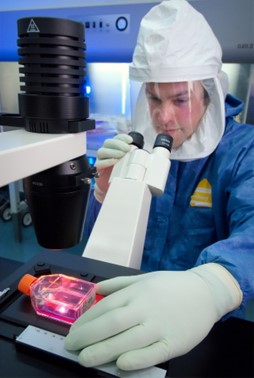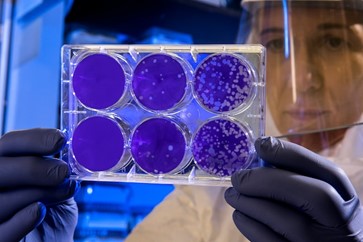Joseph Libkey is a prominent figure in medical innovation, with a distinct focus on enhancing stem cell therapy outcomes through holistic approaches. In this article, Joseph Libkey dives into the world of pioneering science and holistic methodologies, shedding light on how these approaches can lead to tangible advancements in the realm of stem cell treatments.
From Lupus, Parkinson’s, Multiple Sclerosis, COPD, and Chron’s disease to stroke recovery, stem cell therapy, a regenerative medicine, is used to treat these various medical conditions by modulating the immune system and reducing inflammation. But holistic practices may complement the therapy, increasing its effectiveness.
Joseph Libkey says that over the last ten years, studies have shown that patients can maximize the effects of stem cell therapy by optimizing nutrition, staying active, getting enough sleep, and even practicing mindfulness.
Joseph Libkey Discusses Optimizing Nutrition
Nutrition is important for everybody; it facilitates a healthy, happy life, after all. However, it’s particularly crucial for those undergoing stem cell therapy, who need to enhance their stem cells in any possible way.
Reduce Sugar
Joseph Libkey explains that despite the constant cries of nutritionists and sports enthusiasts everywhere, Americans consume too much sugar (i.e., foods that are rapidly absorbed and converted to glucose by the body).
Obvious sources include sugar in soda, desserts, fruit juices, and coffee. However, experts note the surprising amount of sugar in not-so-obvious foods, such as bread, pasta, and crackers.
Combine a high sugar intake with too little movement and blood insulin spikes can cause metabolic syndrome, leading to insulin resistance, high blood pressure, and weight gain. One study even suggests high blood glucose can decrease the regenerative potential of stem cells.
Joseph Libkey notes that a strict, low-glycemic diet quickly regains control of insulin release and sugar levels. Thus, practitioners suggest stem cell patients start the nutrition plan before the procedure and request doctors to check blood for HBA1C for the last three months.
Prioritize Organic Foods
Just six days of eating organic produce, adults and children average a 60% reduction in their urine’s levels of synthetic pesticides. And there’s evidence suggesting those who eat diets containing lower pesticides have a decreased risk of developing cancer.
Joseph Libkey says that moreover, pesticides are linked to the premature aging of adult stem cells, causing them to make more fat cells rather than cartilage or tendon cells.
Limit Calories
Despite popular perception, stem cell function can be enhanced through just short-term calorie restrictions. Through a study on mice, it’s been shown to also boost the functionality of mesenchymal stem cells.
Joseph Libkey reports that at least one human-based study discovered that losing weight through calorie restrictions increases the prevalence of circulating stem cells. Therefore, experts suggest individuals reduce their calorie intake by 20% two weeks before the stem cell treatment.
 Take Supplements
Take Supplements
Both stem cell and cartilage may be boosted through off-the-shelf nutritional supplements like:
- Vitamin D3 as it reduces stem cell aging and boosts their health.
- Vitamin C as it promotes the proliferation of bone marrow stem cells.
- Resveratrol as it protects cartilage while helping stem cells differentiate and multiply.
- Glucosamine as it reduces cartilage loss and boosts stem cell function.
- Curcumin as it boasts strong anti-inflammatory properties, performing well for mesenchymal stem cell functioning.
Getting Fitter
Joseph Libkey says that additional studies show that older animals participating in higher activity levels boast better quality stem cells, creating denser bones. The same research dictates that muscle stem cells are increased through lifting heavy weights and other forms of exercise.
Like with standard weight loss and other aspects of health, improving stem cell treatments through physical activity is all about consistency. Amplifying routines, running faster, cycling for longer, or increasing weights are perfect for maximizing the results of therapy.
Maximizing Sleep
Stem Cell Institute research suggests that insomnia or any lack of sleep is highly detrimental to stem cell function.
Joseph Libkey notes that data shows that a reduction of sleep to four hours rather than the recommended eight reduces the stem cells’ ability to migrate by almost 50%. On the other hand, sleep cycles of seven to eight hours do the opposite, renewing the qualitative and quantitative measures of stem cell circulation.
Trying Mindfulness
Undergoing stem cell therapy can be a trying time, so practicing mindfulness can help speed up recovery by keeping patients calm during times of stress. While it won’t directly enhance the outcome of the treatment, the meditation-based approach allows people to focus on the present and stop unhelpful thinking cycles.
Joseph Libkey says that these days, there are plenty of mobile apps to help patients achieve a beneficial state of relaxation, like Headspace, Health Minds Program, and Smiling Mind. The former is perhaps the most effective, but requirements payment to unlock all the features.








